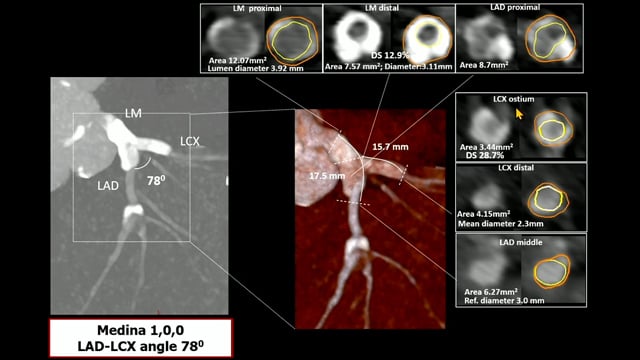3136 results for «20»
3136 results
Challenging situations in M-TEER: Takotsubo syndrome
08 Feb 2025 – From PCR Tokyo Valves 2025
Dive into this session to explore challenging situations in Mitral Transcatheter Edge-to-Edge Repair (M-TEER). Discover case studies showcasing a range of complex scenarios, including Takotsubo syndrome following M-TEER, successful TEER with improved visualization using a bronchial blocker, managing cardiac arrest during MitraClip procedures, and more. Gain...
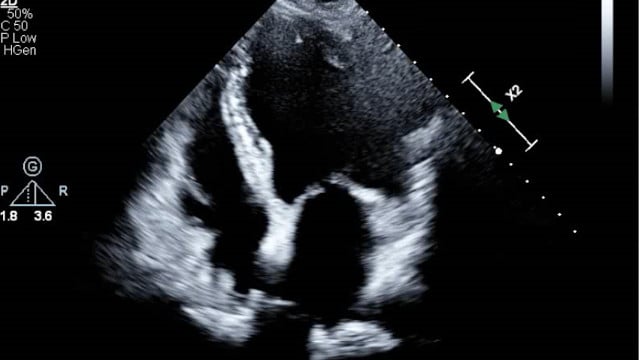
Myval Octapro THV - Optimise patient outcomes with novel design, data and daily clinical practice
21 May 2025 – From EuroPCR 2025
This session presents the latest updates on the novel Myval Octapro transcatheter heart valve (THV), based on one year of real-world clinical experience. Experts share practical tips and clinical cases that highlight how this innovative device can improve TAVI patient outcomes. The session also addresses imaging and...
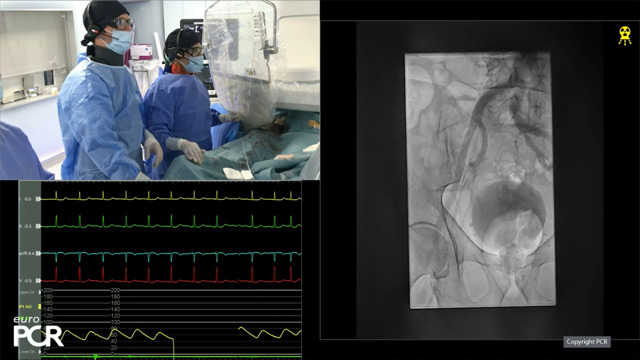
DCB in de novo lesions: new valid option?
20 May 2025 – From EuroPCR 2025
Explore the emerging role of drug-coated balloons (DCB) in treating de novo coronary lesions. This session discusses complexity management, comparisons with drug-eluting stents (DES), and the potential of DCBs as valuable alternatives, especially in high bleeding risk patients.
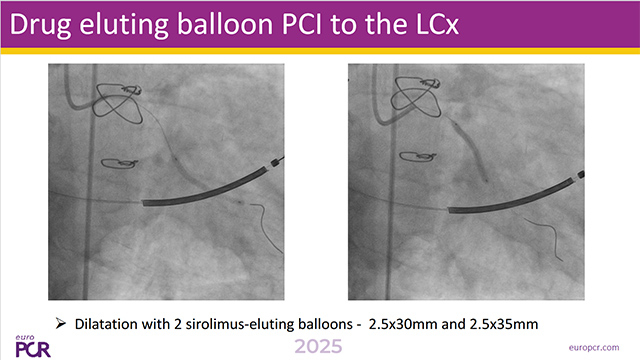
New perspectives in 3D calcium visualisation with CT and angiography for complex PCI
21 May 2025 – From EuroPCR 2025
Thanks to this EuroPCR 2025 session, discover new perspectives on 3D calcium visualisation combining advanced imaging techniques like 3DStent, IVUS, and 3D angiography to enhance complex PCI. Learn from detailed calcium mapping and plaque assessment to guide strategic decisions and see these innovations applied in practice...
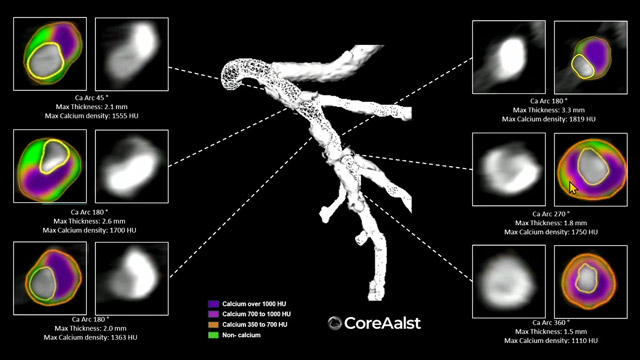
Best companion's case on complications for stable coronary artery disease PCI: episode 1
20 May 2025 – From EuroPCR 2025
This session focuses on managing complications during PCI for stable coronary artery disease through real-world case presentations. Topics include severe dissections, unexpected procedural complications, and escalation of routine interventions, providing practical insights for complication navigation.
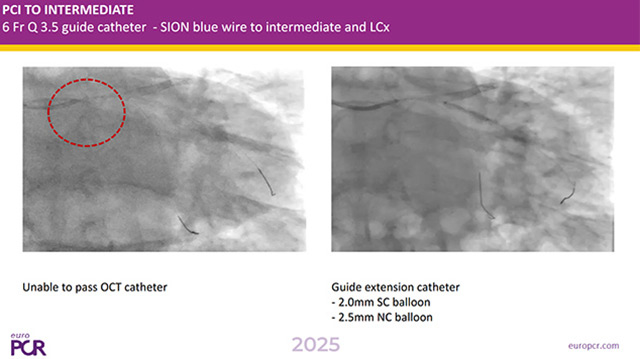
Novel Hertz Contact Intravascular Lithotripsy: could we achieve more in calcium modification?
22 May 2025 – From EuroPCR 2025
Discover how the novel Hertz Contact Intravascular Lithotripsy (IVL) is pushing the boundaries of calcium modification in challenging coronary lesions.
This EuroPCR 2025 session shares real-world insights confirming the promising results of the PINNACLE I trial, with LithiX IVL proving safe and effective across eccentric, concentric, and...
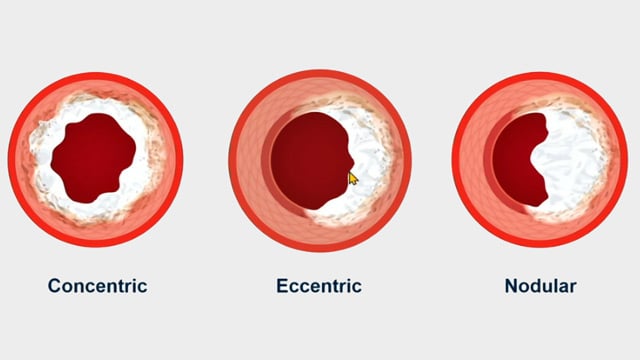
TAVI - Procedural complications
20 May 2025 – From EuroPCR 2025
Review procedural complications encountered during TAVI, including rare adverse events, management of balloon rupture, annulus rupture with tamponade, and unexpected intraoperative challenges. Gain insights into innovative rescue techniques and decision-making under critical conditions.
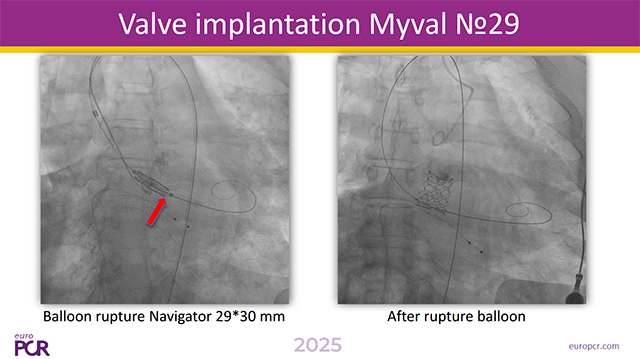
Optimal management of high bleeding risk patient with multivessel disease
21 May 2025 – From EuroPCR 2025
This session offers a comprehensive overview of the management of high bleeding risk (HBR) patients with multivessel disease. Through expert discussion and a live case demonstration featuring a complex elderly patient, it highlights how intracoronary imaging and physiology can guide procedural decisions and improve outcomes in this...
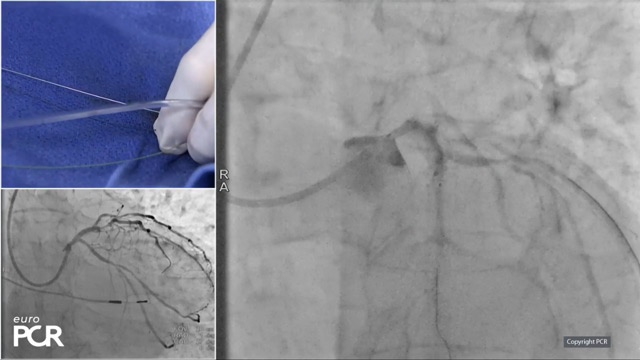
Primary PCI outside of the box: unusual STEMI cases
20 May 2025 – From EuroPCR 2025
This session presents unusual STEMI cases managed with primary PCI outside conventional protocols. Cases include heavily calcified lesions, STEMIs with non-flow-limiting stenoses, simultaneous occlusions with cardiac arrest, and other complex presentations, highlighting diverse interventional strategies.
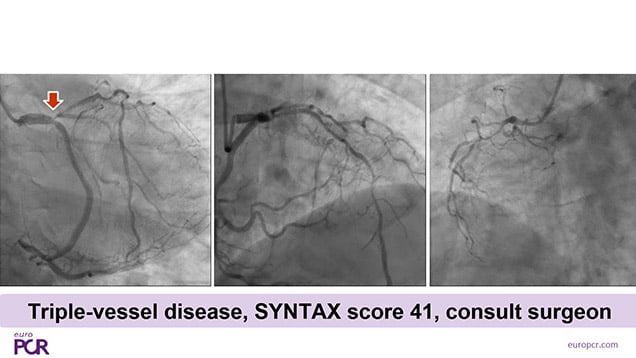
Optimising self-expandable TAVI clinical outcomes without compromise
22 May 2025 – From EuroPCR 2025
Optimising patient outcomes in self-expandable TAVI starts with a clear plan for today, and tomorrow. This EuroPCR 2025 session explores how to make each step count, from access to implantation and closure, using a real-life case of a 77-year-old woman with severe symptomatic aortic stenosis and...
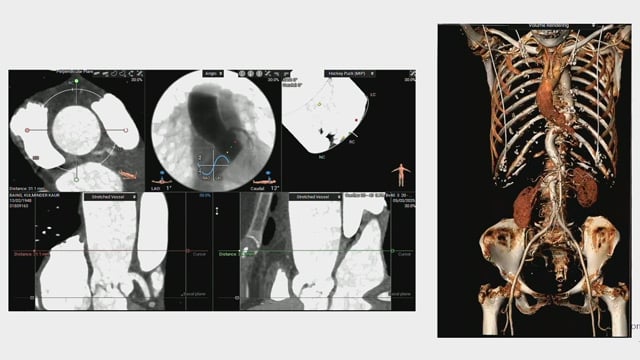
Pioneering innovation in the treatment of mitral and tricuspid regurgitation
20 May 2025 – From EuroPCR 2025
This interventional session explores therapeutic strategies for mitral and tricuspid regurgitation, focusing on the clinical decision-making process between repair and replacement. Through two clinical cases, a 78-year-old male patient with severe degenerative mitral regurgitation and an 88-year-old female patient with atrial functional mitral regurgitation, experts review available...
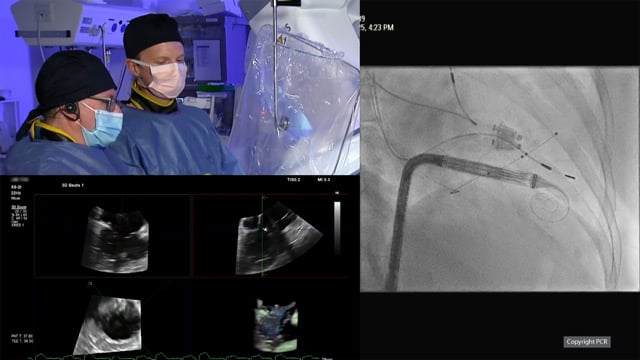
Pushing boundaries in complex PCIs: unique DES technology for complex lesions and patients
21 May 2025 – From EuroPCR 2025
Explore cutting-edge strategies in complex PCI through four detailed clinical cases: a challenging left main bifurcation, a complex procedure using Guideliner Extension Catheters (GEC), an acute coronary syndrome intervention, and treatment of a patient with high bleeding and ischemic risks. This session demonstrates how thorough patient...
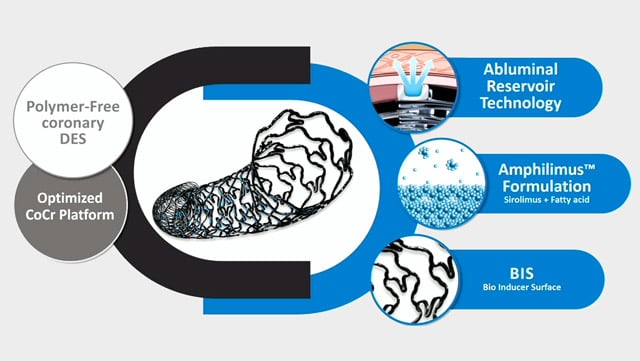
Redefining complex PCI: impact of real-world data and novel evidence on IV antithrombotic strategies
21 May 2025 – From EuroPCR 2025
Explore how real-world data and evolving evidence are reshaping IV antithrombotic strategies in complex PCI. This EuroPCR 2025 session brings together urgent clinical cases—including STEMI patients in shock—and highlights key insights from the SMILE registry. Learn how transition protocols from cangrelor to oral P2Y12 inhibitors are...
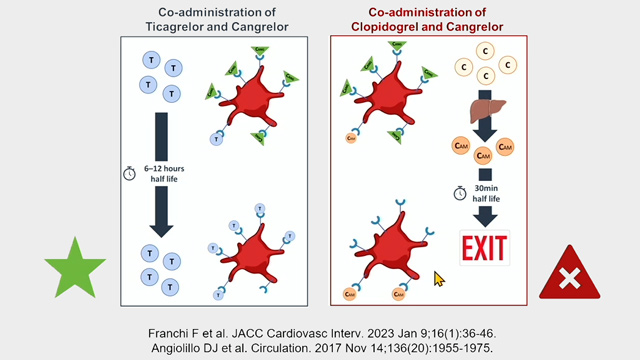
RevoEdge high pressure cutting balloon in PCI: innovate, cut, and conquer
20 May 2025 – From EuroPCR 2025
Discover how the next-generation RevoEdge high-pressure cutting balloon is transforming PCI with innovative design and proven clinical outcomes. This session presents a multicenter randomised trial and real-world case discussions, showcasing RevoEdge’s effectiveness in tackling resistant, complex lesions—including long, tortuous, and fibrotic cases. Learn practical tips, tricks,...
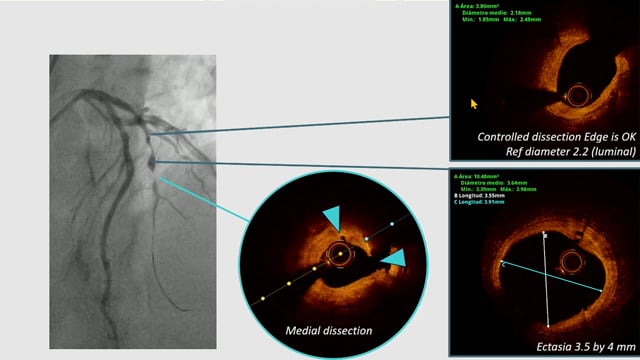
Road to relief - Effective treatment of refractory angina patients with Shockwave Reducer
22 May 2025 – From EuroPCR 2025
Refractory angina affects more than 100 million people globally and is associated with a significantly increased risk of adverse cardiovascular events. Treating this condition effectively remains a major clinical challenge. This session provides detailed insights into the use of the Shockwave Reducer device as an innovative therapeutic...
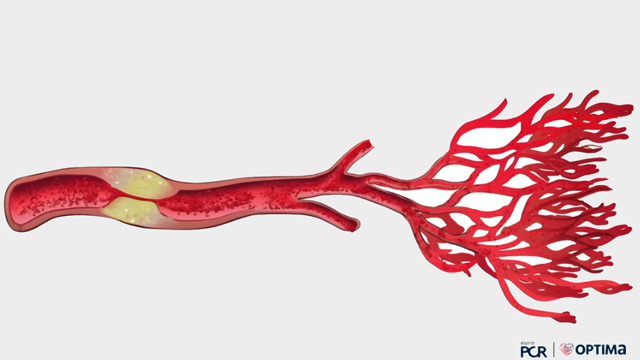
Shaping the future of cardiology - A journey of meaningful innovation in structural heart and coronary
22 May 2025 – From EuroPCR 2025
This EuroPCR 2025 session highlights the latest device innovations reshaping interventional cardiology. Learn how the Myval OCTAPRO THV combines predictable deployment with minimal foreshortening for improved outcomes in structural heart procedures. In the coronary space, the session explores the renewed appeal of the “leave nothing behind”...
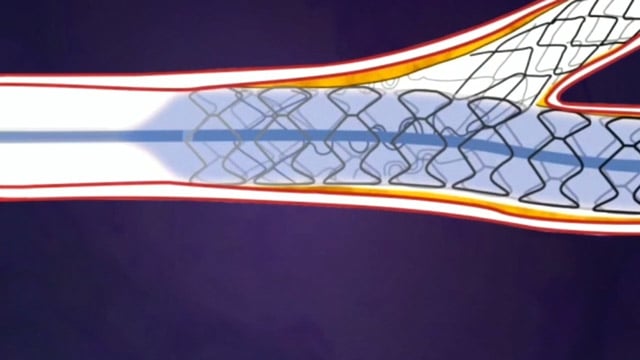
Simplify PCI! Know where and how to win with drug-coated balloon
22 May 2025 – From EuroPCR 2025
This session provides a comprehensive update on the use of drug-coated balloons (DCBs) to simplify percutaneous coronary intervention (PCI). It reviews various types of drugs, coatings, and balloon technologies used in DCBs, alongside the latest clinical data supporting their safety and efficacy. It also offers practical insights into...
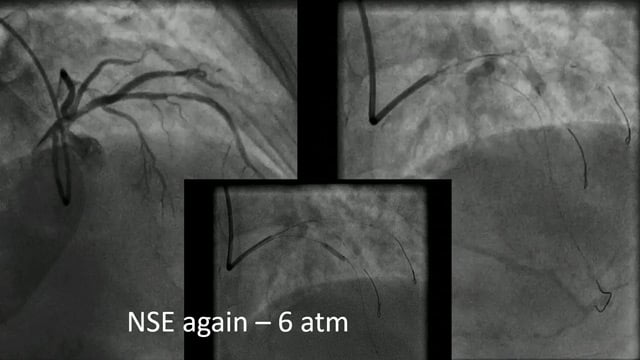
Sirolimus coated balloon for coronary artery disease and peripheral artery disease treatment: the new frontier
20 May 2025 – From EuroPCR 2025
This EuroPCR 2025 session delivers a comprehensive update on the MagicTouch sirolimus-coated balloon (SCB) and its expanding role in treating both coronary and peripheral artery disease (CAD/PAD). The session covers the extensive clinical trial program supporting MagicTouch as a versatile treatment option across multiple indications. It...
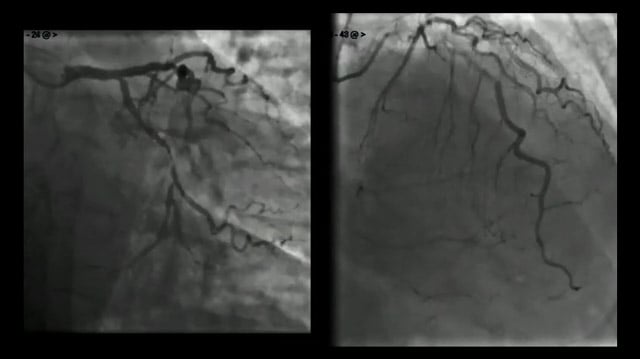
Successful finale - Latest best practices and technologies for large hole arterial and venous closure
22 May 2025 – From EuroPCR 2025
This session covers the latest best practices and technologies for large hole arterial and venous closure, focusing on minimising vascular complications.
Learn about a novel patch-based closure system with encouraging early results in TAVI cases, highlighting the importance of deployment angle and ultrasound guidance.
The venous case presentation...
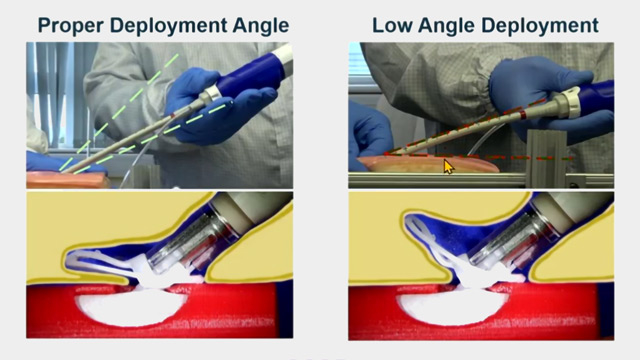
Supraflex for high-risk patients and lesions: from practice to evidence-based medicine proven through FIRE and COMPARE
20 May 2025 – From EuroPCR 2025
Discover the latest evidence on the Supraflex thin-strut sirolimus DES in complex cases—from small vessels and diabetes to STEMI—supported by OCT analysis. This session highlights Supraflex’s performance in high bleeding risk and elderly patients, featuring data from FIRE, COMPARE, EARTH HBR, and Cruz Senior studies. Get...
